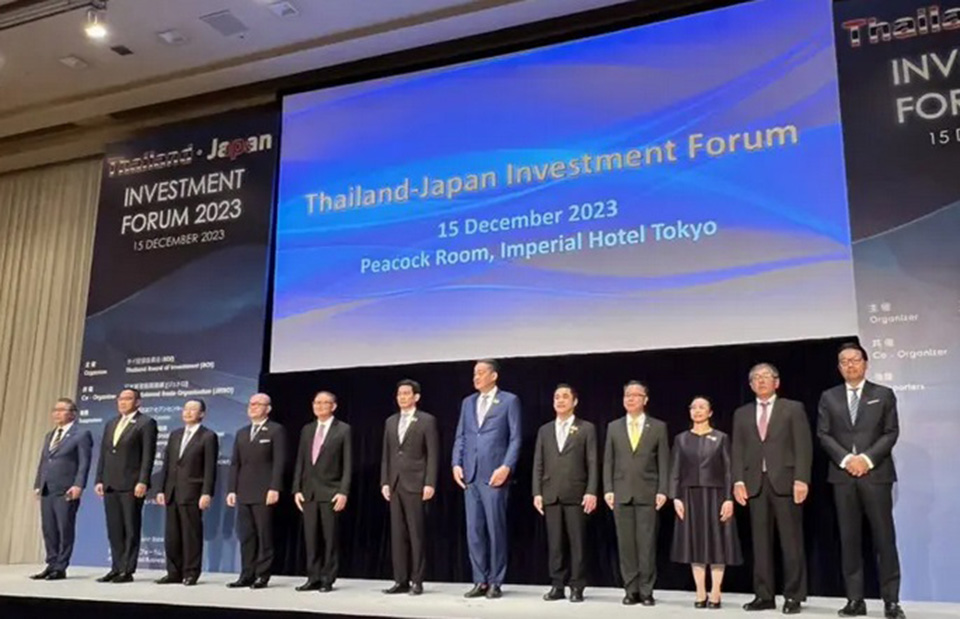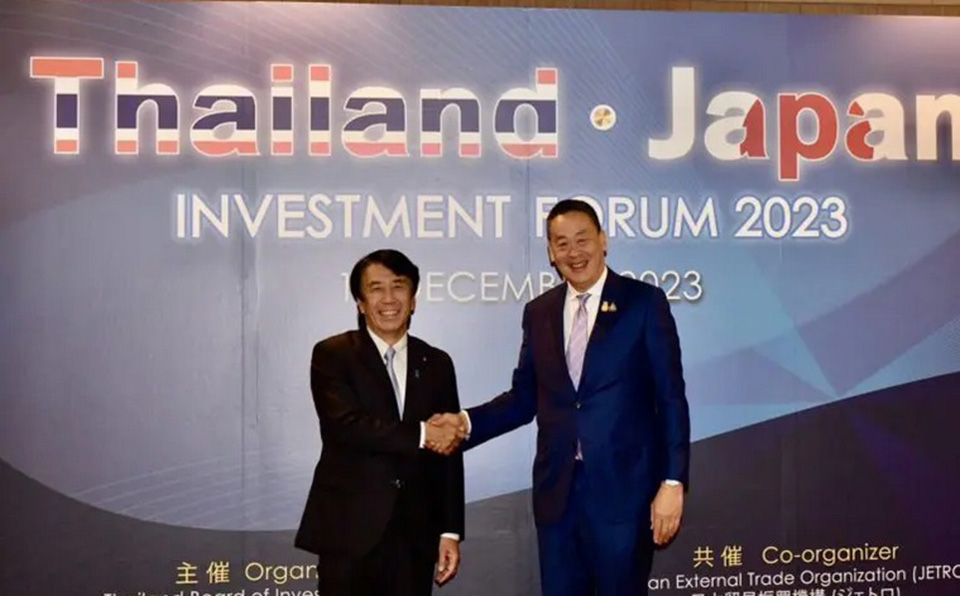
Thai Prime Minister and Finance Minister Srettha Thavisin emphasized Thailand’s readiness to welcome Japanese investments, highlighting the potential for trade and investment between the two nations to drive mutual economic growth in a special address at the Thailand – Japan Investment Forum seminar in Tokyo.
The seminar, held during the ASEAN-Japan Commemorative Summit, featured prominent figures such as the Thai Prime Minister, Ken Saito, Minister of Economy, Trade, and Industry (METI), and Ishiguro Norihiko, Chairman of the Japan External Trade Organization (JETRO).
Prime Minister Srettha underscored the global economic challenges and emphasized Thailand’s commitment to economic policies aimed at addressing these challenges. The government is actively promoting the development of new economic sectors, including digital economy, green economy, advanced technology industries such as AI, research and development of technology and innovation, and supporting the growth and competitiveness of startups on the global stage.
The Thai government has various measures to stimulate the economy, such as injecting funds into the system, boosting tourism, attracting investments from leading global companies, and developing crucial infrastructure.

He highlighted Japan as a major trading partner, accounting for 10% of Thailand’s total trade value, reaching 8.7 trillion yen. He expressed confidence in expanding this value further across various sectors, including agriculture, consumer goods, automotive and electronics components, and various industrial products.
Discussing investments, the Prime Minister acknowledged the significant role Japanese investors have played in Thailand’s economy over the years. The Board of Investment (BOI) has promoted over 4,000 projects with a total investment exceeding 6 trillion yen in the past decade.
In 2023 alone, more than 180 projects with a value exceeding 180 billion yen have been initiated, contributing to the continuous growth of Thailand’s economy and industries, particularly in automotive, electronics, chemicals, machinery, and processed food industries.
He also addressed the energy sector, stating Thailand’s goal to become carbon-neutral by 2050 and achieve net-zero greenhouse gas emissions by 2065. He invited Japan to participate in the development of the clean energy industry, emphasizing Thailand’s readiness in clean energy and the expansion of related industries, such as Green Hydrogen, as a future energy source. (TNA)






